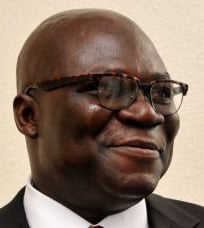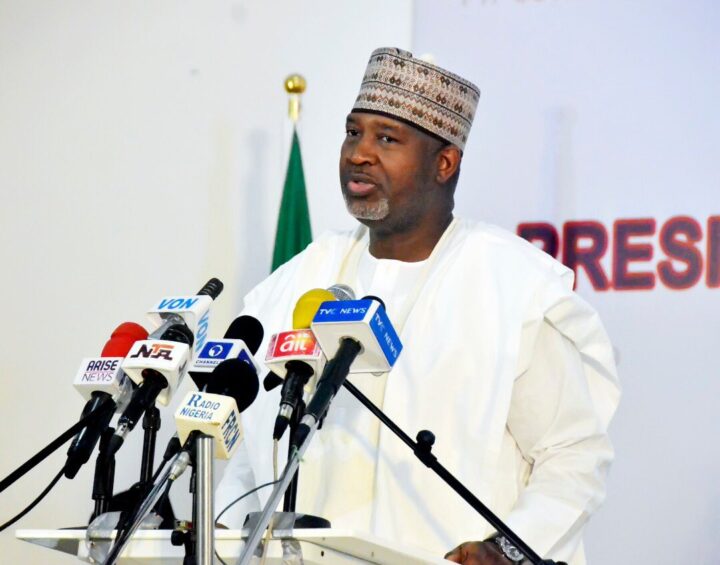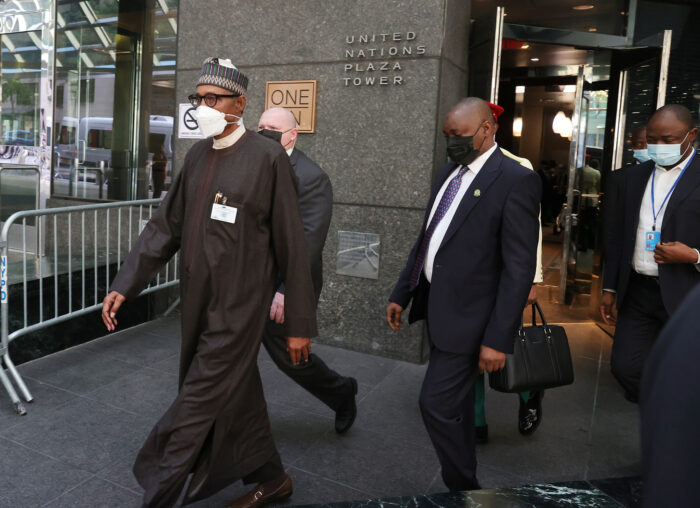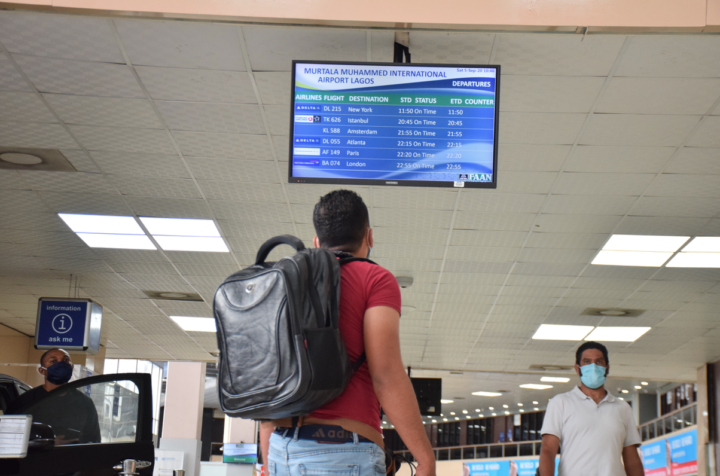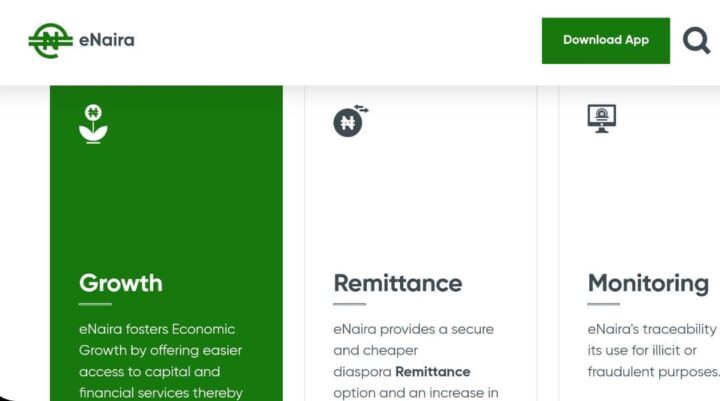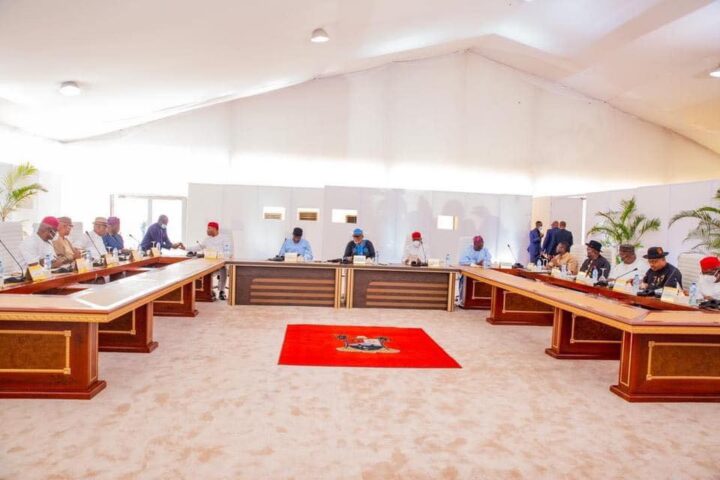Hadi Sirika, Minister of Aviation has since announced the proposed concession of four of Nigeria’s major airports: Murtala Muhammad International Airport Lagos, Abuja, Port Harcourt International Airport, Mallam Aminu Kano International Airport, Kano, and Nnamdi Azikiwe International Airport, Abuja. Despite huge investments in these airports, they have continued to operate at sub-optimal levels, and have emerged as poster units for gross inefficiency. The concession which could last for 20 to 30 years, extendable on the grounds of good performance, would involve only the non-aeronautical assets of the airports. It is essentially a public-private partnership, with the Federal Aviation Authority of Nigeria (FAAN) still in control of the aeronautical operations.
In August 2021, the Transaction Advisors for the new model issued a Request for Qualifications (RFQ), a call for interested parties to submit their bids. Sirika argued that the concession of the airports will boost the country’s revenue and grow the country’s air transport value chain. He assured industry workers that there will be no job losses on account of the concession. Private sector involvement was expected to raise the capacity and profile of the airports. Every company interested in the aviation sector PPP was expected to have a minimum net worth of N30 billion. Interested international parties were asked to partner with local companies in line with Nigeria’s local content development policy. Private investors will own, upgrade infrastructure, operate and recoup their investments – a win-win “Nigerian Airports Concession Strategy”.
Airport concession is a popular private public partnership option in the global aviation industry. In Brazil, Japan, France, and Eastern Europe investors engage in similar deals. In 2009, the London Gatwick Airport was subjected to the same process. Other airports around the world in this class include the La Guardia in New York, the Western Sydney Airport in Australia, Clark Airport in Manila, Sangster International Airport in Jamaica, and Sofia Airport in Bulgaria. Back home, Nigeria had its first experience of airport concession in 2003 when as part of the early efforts of the Nigeria Infrastructure Concession Regulatory Commission (ICRC), the Second Terminal of the Murtala Muhammad International Airport, the Domestic Wing in Lagos was handed over to Bi-Courtney Aviation Services Limited (BASL). Concession agreements require diligence, certainty, integrity and the sanctity of contracts.
But what we observe is that the current Airports Concession Strategy is about to end up like that other big project under Hadi Sirika’s watch as Nigeria’s Aviation Minister: that is, the proposed launch of a national carrier called Nigeria Air. The national carrier was unveiled in 2018 at the Fanborough International Airshow in England. The National Assembly approved money for it. We were told aircraft had been ordered. Minister Sirika continued for a while to tell us that the national carrier would be airborne before 2023. Hmm. Minister of Information, Lai Mohammed, reportedly said the project was not getting off the ground, and had to be suspended, due to “investor apathy.” We seem to be travelling the same route with the concession plan involving the aforementioned four airports. Sirika must be worried that he is fast becoming the promoter of big ideas that die and end up as a waste of state resources and everyone’s energy and time. As someone who has had significant experience in the aviation sector, he should know better, and can do better, but we have not yet seen any concrete evidence of his “expertise and experience.”
Advertisement
It is particularly striking that no investor of serious concern, except maybe one or two, has responded to the RFQ issued by the Federal Government in August for the four airports under concession. Last week, the Permanent Secretary, Ministry of Aviation announced an extension of the deadline by four weeks, now ending October 25, 2021. Will the investors seize this new opportunity and rush in to make their bids? No. I suspect we would end up at this same point by that same deadline. There are international investing groups that are strictly interested in airport concessions around the world. They jump at every opportunity. It is their field of play. For them to have ignored Nigeria so blatantly says something about our country’s business environment and the intelligence profiling of Nigeria’s aviation sector. It has nothing to do with the COVID-19 pandemic. What we are dealing with as in the case of the suspended Nigeria Air project, is simply investor apathy. There is Adebayo Ogunlesi, a Nigerian who bought three UK airports, including Gatwick. in six years. Has he shown interest in Nigerian airports? Why should investors snub Nigeria’s aviation sector? The evidence is in full sight.
Nigeria is an uncertain and unstable business environment. Nigerian authorities also do not respect agreements. Aviation requires humongous, long-term investment. It is not a portfolio, the-tree-branch-breaks-the-bird-flies kind of investment. In the Aviation sector with regard to concession, a major trigger of apathy among other investors would also be the maltreatment of the Bi-Courtney Aviation Services Limited (BASL), the first company to run, upgrade and sustain an airport in Nigeria under a PPP arrangement. Bi-Courtney is a Nigerian Company. It is a veritable demonstration of the workability of the Federal Government policy on local content development. But the same Government has been at war with BASL over the concession for more than ten years. Under the agreement signed with the Federal Government of Nigeria, BASL was meant to maintain the MM2 as it is known for 36 years. A new government unilaterally reduced that to 10 years without reference to the agreement. BASL was also in 2003 granted the concession to run the GAT terminal of the Murtala Muhammad Airport, the old domestic wing of the Lagos Airport. A new Nigerian administration also blocked that. Bi-Courtney went to court and won, all the way, to the Supreme Court. Nonetheless, the Federal Government of Nigeria has pointedly ignored its own Supreme Court. And on top of it all, Bi-Courtney which has “a right of first refusal” over the General Aviation Terminal (GAT) in Lagos is not even being given a chance.
I can understand the obsession with the fact that foreign investors are not forthcoming – who wants to do business in a country and a sector where no one respects agreements and things can change overnight? I also understand why the Federal Government says state governments of Nigeria should not submit any bids – those who mismanage Nigeria know and understand each other. The sub-nationals are even worse than the Federal Government. State governments should in fact also concession their own airports, and the airlines that they have set up. There is no guarantee that those investments will live beyond the particular Governor who put them in place.
Advertisement
Extending the deadline for the submission of bids for the concession of the four airports under reference may not change anything. The Federal Government must review its strategy and be seen to be prepared to act in good faith. It must ensure a level playing field for every interested stakeholder in the private sector. It must respect the judgements of the Supreme Court in the matter between it and Bi-Courtney and demonstrate respect for the sanctity of contracts and agreements. It must also show political wisdom. With the current tone and flavour of Nigerian politics, it would be an invitation to crisis to concession an airport in Lagos without Yoruba involvement, the Aminu Kano airport without the major or minor investor being a Northerner, or the Enugu Airport without Igbo representation, or the Port Harcourt Airport without the people of the South South being in charge one way or the other. This may not be ideal but it is nothing unusual in this context. In some other parts of the world, community-based stakeholders and their interests are prioritised. What Nigeria’s Airport Concession Strategy needs is a re-think, a re-set, transparency and a heavy dose of common sense, the lack of which has so far hobbled Minister Sirika’s plans.
The brewing crisis in Warri
Every step must be taken by the Governor of Delta State, Senator Ifeanyi Okowa, the Delta State Government, and the security agencies to prevent what appears to be another emerging round of crisis over the ownership of Warri. For more than 50 years, the Itsekiri and the Urhobo have fought over ownership of land in Warri municipality, and the appropriateness or otherwise of the traditional title, Olu of Warri. The battle has been fought in the law courts in Nigeria and the United Kingdom in such cases as Suit No. W/44/57, Suit No. W/121/57, Suit No. W/41/57, The Supreme Court in SC67/1971, Ometa vs. Chief Dore Numa 1934 11 N.L.R 18. Agbassa land, for example, is one of the most contested areas of Warri, namely Ejeba, Oteghele, Ogunu, Ekurede Urhobo, Igbudu and Ikpokiti. But the Itsekiri insist that they are the true owners of the land and that in fact the Agbassa are customary tenants to the Olu of Warri as determined by the Privy Council in 1941 and the Supreme Court of Nigeria in 1971 and 1972. The Itsekiri further insist that the Agbassa Urhobo will remain their tenants forever.
Beyond the law courts, this conflict over ownership of land, tenancy and customary rights has resulted in bitter feuds between both groups. There is also an Ijaw dimension to a three-way aboriginal confrontation in Warri. In 1997, the relocation of the Warri South Local Government Headquarters from Ogbeh-Ijoh (Ijaw land) to Ogidigben (Itsekiri land) resulted in absolute chaos and the death of more than 80 persons and the destruction of lives and property. The Ijaws believe that the Itsekiri always try to marginalise them. The Itsekiri, less populous than the Ijaws made early contact with European traders and gained a relative advantage in education, commerce, and even subsequently in other areas of life. This has caused over the years, great resentment against the group from their immediate neighbours: the Ijaws, Isokos, and the Urhobo. The sovereignty especially of Warri is a source of unending irritation between the Itsekiri and Urhobo. In 1997, there was war on all fronts: Itsekiti vs Urbobo, Itsekiri vs Ijaw.
Advertisement
In 1952, when the area now known as Delta State was part of the defunct Western Region, Chief Obafemi Awolowo’s government reversed the title of then Olu of Itsekiri to Olu of Warri, the original title of the Olu for more than 400 years. Other ethnic groups kicked. The main conflict between the Itsekiri and the Urhobo may have been over land, but there is politics involved too. And it is ironic: both groups have lived together for centuries. They inter-marry and have children together. Most Urhobos are half-Itsekiri and vice versa prompting the popular quip that the inter-ethnic conflict between them does not get to the bedroom. In 1999, a dispute over land in Ajagbodudu resulted in bloodshed between the Urhobo and the Itsekiri. The mutual distrust among the ethnic groups in Delta State and indeed, the entire South-South is not merely about land or the politics of domination, but how certain stakeholders at various times, seek to exploit these differences for their own advantage. The Niger Delta Basin accounts for about 90% of Nigeria’s oil and gas. Oil was first discovered in an Ijaw community in Oloibiri in 1957.
Whereas the people of the Niger Delta are all marginalised relative to other parts of Nigeria, which feed on oil and gas proceeds, the in-fighting among the same people is accentuated by personal and group needs for access to a per centage of the raw wealth that runs through their communities. It is trite law that whoever owns the land, owns whatever is attached to it. South South Land owners and other stakeholders are entitled to a share of the oil largesse, no matter how small, and to patronage from oil establishments. My suspicion is that the problem is the opportunistic elite in the Niger Delta. They take advantage of everything. They project personal interests as group concerns. They deploy foot-soldiers who have never heard of the Willinks Commission, or derivation, resource control, the Petroleum Industry Act (PIA) to kill and maim over primordial sentiments. They are at it again.
The trigger this time is the emergence of a newly installed Olu of Warri, Atuwatse III, Emitshola Emiko. One of the fall-outs of the Coronation has been the resurrection of an Urhobo group known as Waado. The group has been very active on all social media platforms. It is not a new group, but it has re-invented itself to throw up old and volatile issues of sovereignty in Warri. The group’s message is simply that there is no such thing as an Olu of Warri but an Olu of Itsekiri and that the way to settle the matter this time around is to change the name of Warri to Waado City. “Waddo”: is an Urhobo word, a generic term which means “gentleman.” Urhobos ordinarily great each other at a gathering: “Ürhobo Waado” or “Mimi Waado”, accompanied by a native, responsorial call. The major towns in Waado City as outlined on Facebook by one Omonire Isaac Ovwigho include Edjeba, Ogunu, Okere, Ughotor, McDermott, Igbudu, Ibo market, Main Market, Iyara, Deco Road, Esi Layout, Okumagba Layout, Enerhen, Ekpan, Jedo, Jakpa, Effurun, Osubi, Udu, Eekte, Ovwian, Aladja, Oko-Okuoko, Otokutu, Ugbomro, Agbarho, Airport Road, Ekurede Urhobo and all surrendering (sic?) areas” whatever that means. The Waado group has also posted audio messages online urging Urhobo youths to stand up to the Itsekiri. They are threatening to organise an anti-Itsekiri protest on October 1.
I have seen at least a petition against this “Waado City Group” by an Itsekiri Group – the Itsekiri Interest Group (ING) titled “RE: Promoting Inter-Communal War, A Felony: Contrary to the Provisions of Section 42 of the Criminal Code Law CAP C21 Laws of Delta State of Nigeria, 2008: A Formal Petition Against Dr Ejiro Imuere, Omonire Ovwigho and His Cohorts, Self-Styled “Wado City Group”. The Itsekiri Interest Group (ING), like the Itsekiri Renewal Movement (IRM) before it, is opposed to the request that Warri be renamed Waado City. They claim this is illegal, provocative and an attempt to breach the peace. They want Governor Okowa, in his capacity as Chief Security Officer of the State to nip what may end up as a “deadly crisis” in the bud.
Advertisement
Nobody needs a bloodbath in Warri. Both Governor Okowa and the relevant security agencies should wade into this matter and prevent a certain breakdown of law and order. As we have seen in Ife-Modakeke, Tiv-Junkun, Aguleri-Umuleri, Southern Kaduna, the authorities tend to act too little too late, and when pundits cite the failure of intelligence, they claim innocence. Such an excuse would be foolish in this case. The threat is well known. The dangers have been communicated in advance. Any form of leadership failure will be unreasonable.
Advertisement
Views expressed by contributors are strictly personal and not of TheCable.
Add a comment
